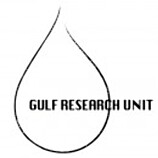
Archive: Gulf Research Blog
Blog articles from 2009 to 2012. The Gulf Research Unit is research programme based at the University of Oslo.
Human rights and Economic Development
Denne artikkelen er over ti år gammel og kan inneholde utdatert informasjon.
By: Jon Nordenson
Economic development is a major concern for Kuwait, as it is for any other country. But Kuwait has proclaimed some rather ambitious goals; the country is to become a “world financial hub” through new developmental projects. In addition to infrastructural renewal, the country is also looking to improve their record on human rights and corruption. But if Kuwait is to become the politically correct financial alternative of the region, some rather big changes have to occur.
In as far as Dubai (still) is the shining beacon to aim for with regards to becoming a “financial hub”, Kuwait has a long way to go. As Michael Herb shows in his article A Nation of Bureaucrats: Political Participation and Economic Diversification in Kuwait and the United Arab Emirates, Kuwait lags far behind UAE and the other Gulf countries in terms of foreign direct investment. Moreover, they have fewer tourists visiting than any other gulf state. In addition, the turbulent relationship between parliament and Government hasn’t made the job of catching up with Dubai – if that is the goal - any easier.
Yet, this relationship seems to be changing. Since the elections last year, the level of “crisis” in Kuwaiti politics have declined, and new laws have been passed. A new labor law, a five-year development plan, and even a draft of a privatization bill have all passed through parliament. Arab Times recently reported that HH The Emir have expressed his appreciation of the good relationship between the legislative and the executive powers in the country, and according to Kuwait Times, Deputy Premier for Economic Affairs Sheikh Ahmad Fahad Al-Sabah recently assured that “The development plan is on track since it was approved by the parliament”. Though much still has to be done, the development is intriguing; if the elected parliament and the government together manage to diversify Kuwait’s economy it would be ground breaking in the region. There is, however, no guarantee that this will happen. For instance, the privatization bill has been met with fierce opposition.
And then there are the issues of human rights and corruption. One should think that this is an area where Kuwait holds the upper hand towards the UAE; whereas Kuwait has an elected parliament and a history of grass roots political mobilization, the UAE has nothing the Kuwaiti democratic project. This may constitute a major Kuwaiti advantage; the parliament may give economic reforms legitimacy in the population, and a stable democracy may seem as s sound alternative to invest in. Yet, in the whole, Kuwait’s human rights record is not much better than the UAE’s.
If one compares Amnesty International’s annual reports on Kuwait and the UAE, the difference is not exactly striking:
UAE: Migrant workers were exploited and abused. Cases of torture and prolonged detention without trial were reported. Women continued to face legal and other discrimination. Access to certain websites was blocked. The authorities began to address the cases of stateless persons, or bidoun. One person was executed.
Kuwait: Migrant workers continued to experience exploitation and abuse, and to demand protection of their rights. Some were deported after participating in mass protests. The government promised to improve conditions. Several journalists were prosecuted. One case of torture was reported. At least 12 people were under sentence of death but no executions were known to have been carried out.
One may of course argue that the report on Kuwait is somewhat less condemning than that on the UAE, but it is in no way flattering for the country. And newspaper reports indicate that the authorities are still not serious enough in dealing with abuse of migrant workers. For instance, on the 25th of July, Arab Times reported of one housemaid dying when trying to escape, one being seriously injured, and another who hanged herself. In both cases, the police “registered a case and started investigations”. On the 22nd of May, the same newspaper reported of two housemaids who committed suicide. Both suicides were “surprising” to their employers, and the police “opened cases”. There may of course be many different reasons behind such tragic events, and my intention is by no means to suggest that all Kuwaitis are in some way abusive towards their employees. Nevertheless, one need not follow Kuwaiti news for a long period before one detects a pattern. For obvious reasons, Kuwait needs to deal with these issues. And if the goal is to “improve Kuwait’s international image on human rights issue”, the authorities must step up their efforts.
As for corruption, Kuwait is ranked no 66 on Transparency International’s annual report for 2009, just behind Georgia. Dropping down from no 65 in 2008, the country came behind the other GCC countries. Just as unflattering, the country was banned from both the international football federation (FIFA) and the international Olympic committee (IOC), due to “government interference”. In other words, Kuwait has a long way to go in terms of corruption if the country is to become tempting for investors.
If Kuwait manages to institute economic reform through democratic procedures, this may give them an advantage in the region. But in order to become something of a politically correct alternative, human rights and corruption must be addressed more seriously.






